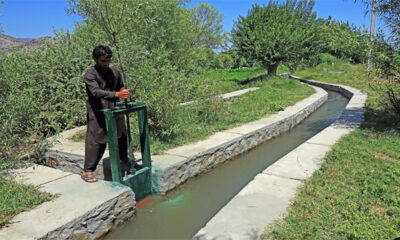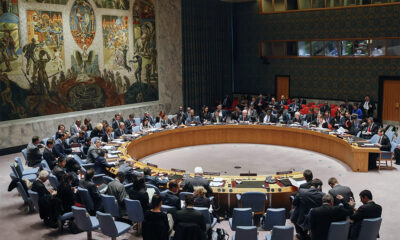Regional
China, Russia launch joint air patrol, alarms South Korea

China and Russia conducted a joint air patrol on Tuesday over the Sea of Japan and East China Sea for a sixth time since 2019, prompting neighboring South Korea and Japan to scramble fighter jets.
China’s defense ministry said the patrol was part of the two militaries’ annual cooperation plan. South Korea scrambled fighter jets, according to its military, after four Russian and four Chinese military aircraft entered its air defense zone in the south and east of the Korean peninsula, Reuters reported.
Japan’s military said it had scrambled fighter jets after verifying that two Russian bombers had joined two Chinese bombers over the Sea of Japan and flown together as far as the East China Sea, where they were joined by two Chinese fighter planes.
In China’s last joint aerial patrol with Russia in November, South Korea also scrambled fighter jets after Chinese H-6K bombers and Russian TU-95 bombers and SU-35 fighter jets entered its Air Defence Identification Zone (KADIZ).
Japan similarly scrambled jets when Chinese bombers and two Russian drones flew into the Sea of Japan.
An air defense zone is an area where countries demand that foreign aircraft take special steps to identify themselves. Unlike a country’s airspace – the air above its territory and territorial waters – there are no international rules governing air defense zones.
The joint aerial patrols, which began before Russia sent its troops in Ukraine and Beijing and Moscow declared their “no-limits” partnership, are a result of long expanding bilateral ties built partly on a mutual sense of threat from the United States and other military alliances.
In their May 2022 patrols, Chinese and Russian warplanes neared Japan’s airspace as Tokyo hosted a Quad summit with the leaders of the United States, India and Australia, alarming Japan even though China said the flights were not directed at third parties.
China’s increasing military assertiveness in the region has coincided with an increase in military maneuvers and drills by the United States and its allies in the region.
Since last week, the coast guard of the United States, Japan and the Philippines have held their first trilateral naval exercise in the South China Sea.
The White House said on Monday that recent encounters between U.S. and Chinese forces in the Taiwan Strait and South China Sea reflect a growing aggressiveness by Beijing’s military that raises the risk of an error in which “somebody gets hurt.”
Over the weekend, a Chinese warship came within 137 meters of a U.S. destroyer while the U.S. and Canadian navies were conducting a joint exercise in the sensitive Taiwan Strait, prompting complaints about the safety of the maneuver.
Shortly before that, a video showed a Chinese fighter jet passing in front of a U.S. plane’s nose with the cockpit of the RC-135 shaking in the turbulence caused by the flight.
“U.S. military ships and aircraft have traveled thousands of miles to provoke China at its doorstep,” China’s foreign ministry spokesperson Wang Wenbin said during a regular news conference on Tuesday.
“Insisting on conducting close reconnaissance and flexing its muscles near China’s territorial waters and airspace is not safeguarding freedom of navigation, but promoting of navigation hegemony and is a blatant military provocation,” he said.
Regional
Hamas leader to visit Turkey for talks with Erdogan
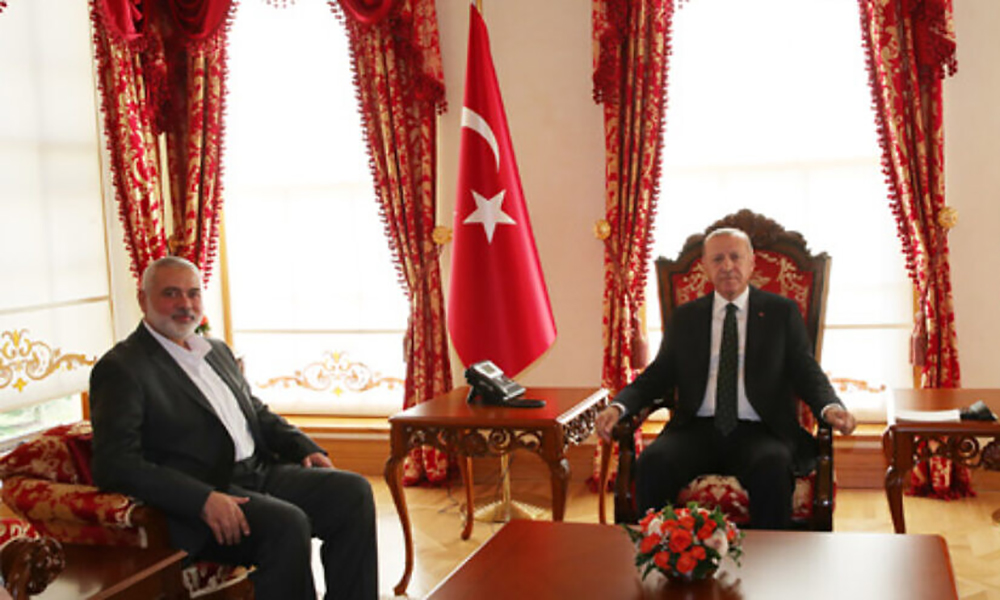
Ismail Haniyeh, leader of the Palestinian Islamist group Hamas, will travel to Turkey at the weekend to hold talks with President Tayyip Erdogan, while Ankara’s top diplomat met the Hamas leader during a visit to Doha on Wednesday, Reuters reported.
Turkey, a NATO member, has denounced Israel’s offensive in Gaza and called for an immediate ceasefire. Erdogan has called Hamas a “liberation movement” while slamming the West for what he calls their unconditional support of Israel. Ankara has imposed trade restrictions on Israel.
“I will host the leader of the Palestinian cause at the weekend. We will discuss a number of issues,” Erdogan told lawmakers from his AK Party in parliament.
Haniyeh’s visit to Istanbul will be his first trip to Turkey since Israel began its campaign in Gaza on Oct. 7. It also comes amid escalating regional tensions, after Iran attacked Israel at the weekend in response to an Israeli strike on the Iranian embassy compound in Damascus on April 1.
Erdogan said on Tuesday that Israeli Prime Minister Benjamin Netanyahu and other Israeli leaders were solely responsible for the regional crisis, read the report.
In Doha, Turkish Foreign Minister Hakan Fidan met Haniyeh to discuss humanitarian aid to Gaza, ceasefire efforts and talks on hostages. Hamas said in a statement it had conveyed its views on the ceasefire negotiations and its requirements, while reviewing “the importance and centrality of the Turkish role”.
Speaking later at a press conference alongside Qatari Prime Minister and Foreign Minister Sheikh Mohammed bin Abdulrahman Al Thani, Fidan said the risk of a wider regional conflict persisted amid the Iran-Israel tensions, adding that countries which supported Israel should revise their positions.
TWO-STATE SOLUTION
He added that unity among Palestinians was needed to achieve a sovereign Palestinian state and two-state solution, and that he had conveyed Turkey’s position regarding a ceasefire in Gaza during his nearly 3-hour meeting with Haniyeh.
“We see that many actors in the West who are sympathetic to this, who want to support this idea (two-state solution) have concerns about Hamas,” Fidan said, adding that Israeli “propaganda” portraying Hamas as a terrorist group had exacerbated concerns about the group in the West.
“We exchanged views on their (Hamas’) need to openly share what sort of views, what sort of expectations they have within the solution leading to a Palestinian state to alleviate these perceptions.”
Fidan said Hamas had previously vowed to shut down its armed wing if a Palestinian state in line with 1967 borders were established, adding the group would then continue only as a political party. He said this was repeated to him during his talks on Wednesday, read the report.
Regional
Riyadh eyes significant investment in Pakistan, Saudi FM says

Saudi Arabia’s foreign minister said on Tuesday that Riyadh will be “moving ahead significantly” to invest in projects in Pakistan, days after Islamabad announced that the Kingdom had pledged to expedite $5 billion in investment, Reuters reported.
Prince Faisal bin Farhan bin Abdullah arrived in Islamabad on Monday to lead a delegation on a two-day visit as part of efforts to boost economic cooperation.
His Pakistani counterpart Ishaq Dar told a joint news conference that Pakistan gave extensive briefings to the delegation on potential investment projects.
Dar outlined areas of interest for Saudi investors such as agriculture, mining, information technology and aviation.
The prince said he was very impressed with the briefings on the investment opportunities, read the report.
“This gave us some very, very significant confidence that we will be able to move forward on those projects which we decide to identify as a worthy of investment,” he said, adding, “I am sure we will be moving ahead significantly.”
The delegation came to follow-up on the understanding reached between Prime Minister Shehbaz Sharif and Saudi Crown Prince Mohammed bin Salman during their recent meeting in Makkah Al Mukarramah to enhance economic cooperation between the two countries.
Sharif met with the crown prince last week and discussed expediting a planned $5 billion investment package, which cash-strapped Pakistan desperately needs to shore up its dwindling foreign reserves and fight a chronic balance of payment crisis.
The Special Investment Facilitation Council (SIFC), a body consisting of Pakistani civilian and military leaders set up to promote investment in Pakistan, briefed the delegates to showcase various sectors for investment, Dar said.
The visit came ahead of Pakistan seeking a 24th bailout from the International Monetary Fund. Pakistan Finance Minister Muhammad Aurangzeb is in Washington to attend the IMF, World Bank spring meetings where he will open formal talks for the new loan programme, Reuters reported.
Regional
IRGC chief warns of harsher response if Israel attacks Iran

Iran’s chief commander of the Islamic Revolution Guards Corps (IRGC) has warned Israel that Tehran’s reaction will be “certainly much harsher” if the regime responds to Iran’s retaliatory operation.
“The Zionist regime must stop its past behavior and learn from this [attack]. If the Zionist regime shows any response, our reaction will certainly be much harsher based on this new experience we have gained from their capabilities,” Iran’s Press TV quoted Major General Hossein Salami as having said Sunday.
“From now on, if the Zionist regime attacks our interests, assets, figures, and citizens at any point, it will face counterattack from within the Islamic Republic of Iran,” he added.
On Saturday night, the IRGC launched extensive missile and drone strikes against Israel in response to an attack on the Iranian diplomatic mission in Syria early this month.
Early Sunday, Iran’s chief of army staff Major General Mohammad Baqeri said they had concluded its retaliatory strikes on Israel and also warned of a “stronger” reaction if Israel responded.
“The operation is over from our point of view, but the armed forces are ready and we will act if necessary,” Baqeri said Sunday morning.
-

 Sport4 days ago
Sport4 days agoACL draw to be broadcast live on ATN channels
-

 Regional4 days ago
Regional4 days agoIRGC chief warns of harsher response if Israel attacks Iran
-
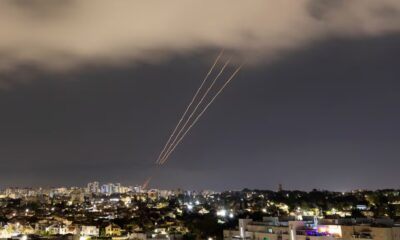
 Regional4 days ago
Regional4 days agoIran launches retaliatory attack on Israel with hundreds of drones, missiles
-

 Sport3 days ago
Sport3 days agoACL fever grows as fixtures finalized
-
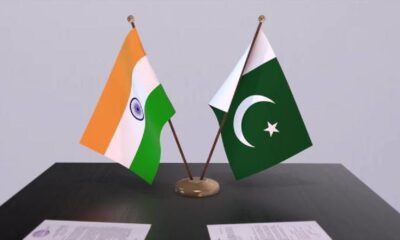
 Latest News4 days ago
Latest News4 days agoContact group on Afghanistan hits roadblock over Pakistan’s gripe with India
-

 Sport4 days ago
Sport4 days agoHetmyer powers Rajasthan win in low-scoring IPL thriller
-
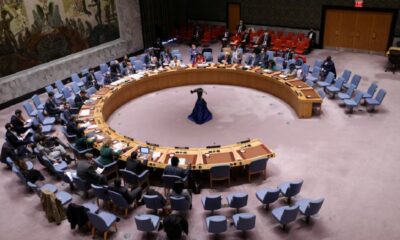
 World4 days ago
World4 days agoUN Security Council to meet Sunday on Iran attack
-

 World3 days ago
World3 days agoUS will not take part in any Israeli retaliatory action against Iran








